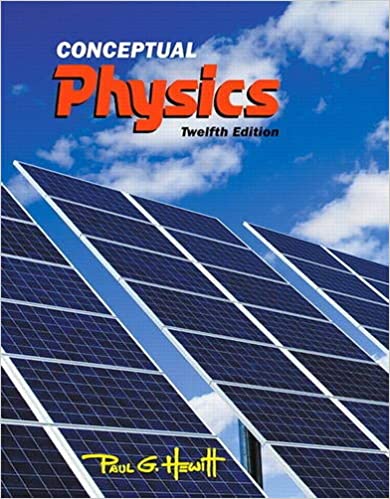[Note: New editions of this text are published every few years with only slight changes made in each new edition. I wrote the original review from the 1985 and 1993 editions, but the book is now in its 13th edition (with a 2022 copyright). Over the years this has come to be commonly used as a college text, so prices for current editions can run over $200 for a hardcover book. Paperback editions are less expensive, and you might also look for older or used editions.]
Conceptual Physics is an award-winning physics text that is highly recommended for homeschoolers. The Colfax's wrote in Homeschooling for Excellence, that this book "...was less comprehensive than we would have liked but more accessible than anything else we could locate" (p.89). It is written as a college text but can be used at the high school level. It does not require a background in higher math for understanding, although some algebra is required. Author Paul Hewitt writes about physics in clear, non-mathematical language understandable to those lacking a science background. Parents might even read the book and adapt the information to fit all ages.
Each chapter has a section called "Home Activities," which describes fairly simple lab/experiment activities that can easily be done at home without fancy equipment. Using these activities can make this a complete lab course. A separate lab manual offers more challenging lab activities. However, if you use the "Home Activities" in the text to create your own labs, the lab manual should not be essential.
Topics covered are mechanics, properties of matter, heat, sound, electricity and magnetism, atomic and nuclear physics, and relativity and astrophysics. This course is adequate for non-science majors but insufficient for physics majors and those who will major in other areas of science because it is not based on the use of calculus. The publisher tells us that the text can be used to prepare students for the Advanced Placement Physics B exam.
There are many questions at the end of each chapter for students to answer. Answers to the odd-numbered questions are at the back of the book, so you might assign only odd-numbered questions if you want students to be able to check themselves.
There is also an instructor's manual that includes answers along with teaching information.
Learn Science Conceptual Academy
See my review of Learn Science Conceptual Academy, a website for homeschoolers that offers both a standard course and an honors-level course for this textbook (12th edition) which should be a big help. These structured, online courses include videos, study aids, worksheets, quizzes, exams, and lab activities. Homeschool Planet's lesson plans are incorporated into the courses.












